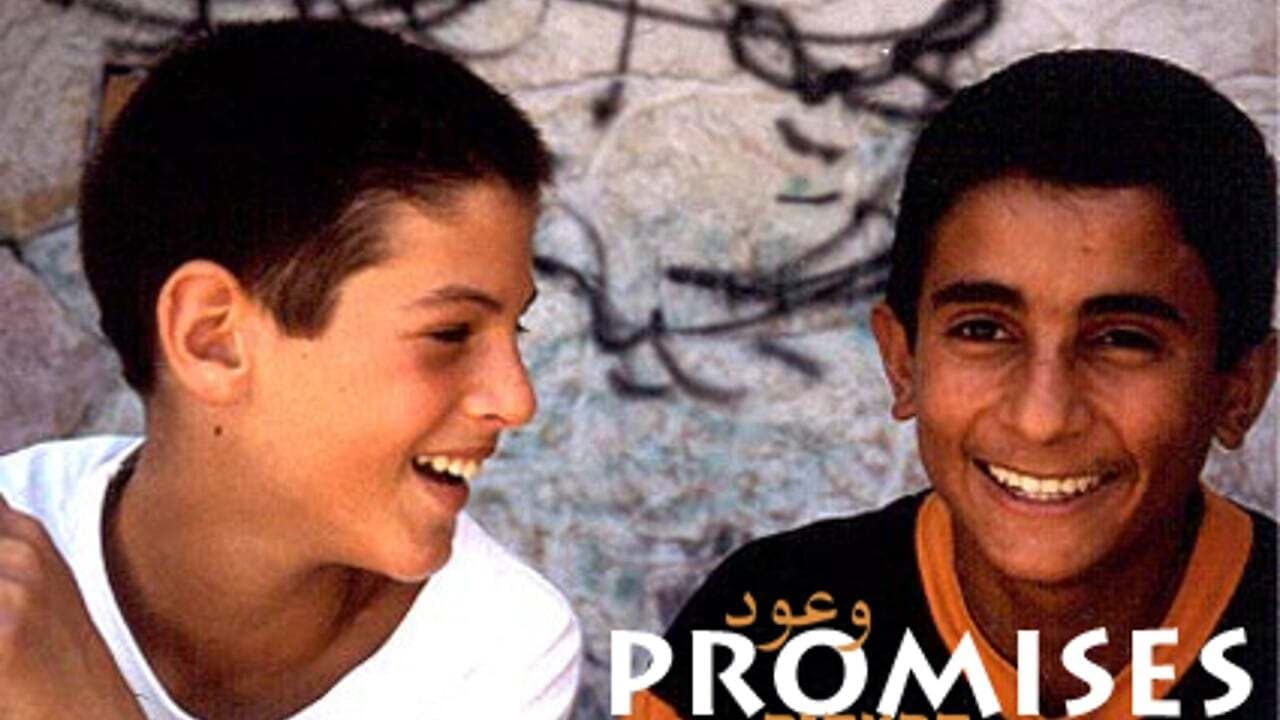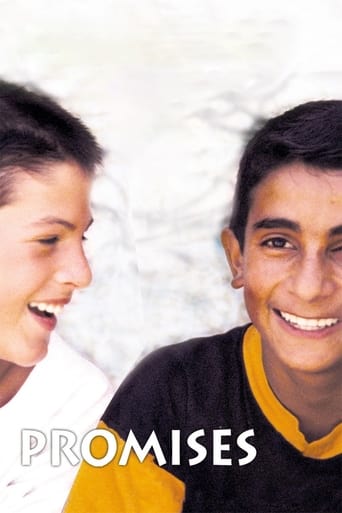

Well, I saw this movie, recently and was pleasantly surprised at the integrity of the presentation. This movie did a wonderful job presenting the struggle/conflict from the perspective of the children being interviewed. Having spent time working with Palestinian children in Ramallah (10 miles north of Jerusalem), I found myself recalling many, very similar, conversations with other children. What this movie reminded me of was the sincerity of these children as they spoke their impressions, as though they were fact.While I could not possibly keep track of all the incorrect statements being made by both sides (Israeli and Palestinian) within this movie... if the viewer is able to appreciate that the children are often simply repeating a mantra they have been trained in by the adults in their lives, the viewer can utilize this movie to learn more about the culture of this conflict.While interviewing the settler boy, we saw the hardness of his heart toward the Palestinians. We can supposed that he has learned this from his parents or other in his life. The movie does show a teaching session that the Palestinian children go through at a school of some kind. I was not surprised to see the strong political views being taught to the children. These kinds of tactics, which I viewed as well, while I was there, always seemed to be the best kind of introduction to a presentation for the PLO or Hamas recruitment. And I am sure that many of the Jewish kids receive a similar style of education. It is a sad story watching these kids being bred to mistrust one another.What I liked even more was the "DVD Extra" where 5 of the 7 kids were interviewed in the summer of 2004. I was surprised to hear the Palestinian girl say she was upset at the "twins" joining the IDF. Apparently, they never teach the kids there that the IDF soldiers service is mandatory. This was just another example of poor understanding of the other side, from both sides.I don't consider this movie completely unbiased... but it does do a good job, trying to present both sides of this conflict and the affect it has on the lives of the kids growing old through it. If you have an opportunity to watch it, don't pass it up.
... View MoreAfter seeing this movie, I had to sit and think about my view of Israel/Palestine and Arab terrorists in general. The US supports Israel. Israel has made Arabs/Muslims third class citizens w/ zero rights and zero say. To leave their own town, they have to enter checkpoints, get searched and are usually denied access anyway. They are treated like we treated the Blacks. The blacks rebelled and gained freedom. The Arabs rebel because of their injustice in anyway they can (exactly like the blacks did!) and we support their oppressors(Israel)? Not only do we stand behind them, we HELP them do it. Bin Laden attacked the US in response to his anger at the US, which was in his eyes (and the entire Arab world), a BIG Israel. I had NO idea things were that bad in Israel/Palestine. The West Bank and Gaza strip fiasco makes the whole "blacks in the back of the bus" seem trivial. Which makes me wonder that if more people knew what was REALLY happening, would we hate Iraq/Afghanistan as much as we do? Did the Southern white plantation owners despise the blacks for rebelling? You bet your bippy they did. And after seeing this movie, I feel America has become the Southern Plantation Owner to the world, keeping the Arabs in their "proper place" in order to support Israel. I need to read about this some more, because I feel I've been cheated for years and not getting the whole story. Kind of like the Khmer Rouge, Rwanda and now Sudan....As a documentary, the story was flawless. I got angry at one of the Jewish Youths (Yanko?) for changing his view completely. After seeing the other side, feeling for them, and wanting to help make a change, he became part of the problem. He became flippant and uncaring. One of the Muslim girls, who became good friends with him, was explaing how upset and shocked she was when he joined the military. Her brother was arrested just for being an Arab and was in prison. The Jewish boy said he may have been the one who arrested him, he didn't know, and didn't seem to care either. This movie made more of a statement than Fahrenheit 911 or Bowling for Columbine did for the main reason that is wasn't even trying to. I'm not sure if anyone else got the same feeling from this movie as I did, but besides making me question my entire viewpoint, it was a fantastically filmed documentary. It didn't win the Oscar, but I don't know who it was running against. I rate this movie 4 marbles out of 4.
... View MoreA lot of people liked this film. Heck, I even like this film. I laughed, I cried...BUT...This isn't a Hollywood film about fictional characters in a fictional situation. It's a documentary about the Palestinian/Israeli conflict. So I have some very serious problems with the overall approach of the film.First of all, the main scenes in this film are built on the manipulation of reality by the filmmakers. In the two crucial scenes in the film, in which Palestinians are brought out of the West Bank to visit the remains of their village and Israeli children are brought into the West Bank to play with Palestinian children, the action is able to take place ONLY because the film's producers intervened and set up the situations.Now, to their credit, the directors don't hide the fact that they are manipulating reality. But just the fact that they do, and that this is what the entire crux of the film is based around, leaves me feeling a little empty. After all, wouldn't it be more to the point to show that, in fact, if you are Palestinian living in the West Bank you will NEVER be able to go visit the remains of your village in what is now Israel, and if you are Israeli you will NEVER go to a Palestinian refugee camp to find out what the "enemy" is actually like in person? I realize that these scenes are constructed to make a point. But I prefer documentaries that rely on the way things are, rather than the way things could/should be.And in creating this alternative to actual reality, the filmmakers have managed to gloss over the actual point that they SHOULD be making in a film about the Palestinian / Israeli conflict -- which is that the Israeli military occupation itself is at the root of this trouble, and that lifting it is the key to peace. Instead, a starry-eyed illusion is created in which, if we could all just meet each other and get along, then all the problems would be solved and the divisions mended. True enough, perhaps -- but where is the concrete truth, the actual root of separation? For all its lovely tearfulness, this film serves mostly to leave us feeling warm and sad, rather than address the actual issues that need to be addressed for this conflict to end.
... View MoreA document for life. I saw it in Rotterdam, during the IFFR. The director was sitting behind me, I realized later. I have never experienced a silence during the last titles rolling over the screen. We were all so impressed. It was a moment to cry. Never, a documentary, or anything on the screen touched me so deeply as this projection.
... View More